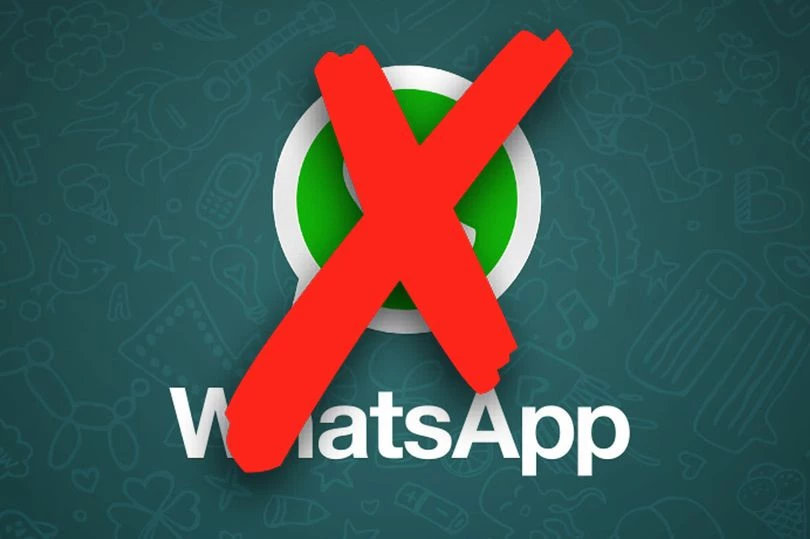
House Enacts Ban Amid Cybersecurity Concerns
The U.S. House of Representatives Office of Cybersecurity has officially ordered a total ban on Meta’s WhatsApp across all House-issued devices. An internal memo, issued by Chief Administrative Officer Catherine Szpindor, classifies WhatsApp as a “high-risk” application. Reasons include opacity in data protection practices, lack of encryption for stored messages, and a range of security vulnerabilities. Staff have been instructed to remove the app by June 30 to align with the new cybersecurity mandate.
Security vs Surveillance: The Official Rationale
House officials argue that WhatsApp fails to meet fundamental cybersecurity standards. The memo highlights several shortcomings: uncertainty around how the app safeguards user data, absence of at-rest encryption, and susceptibility to exploitation by foreign spyware. This move follows similar bans in recent years, such as the TikTok ban on government devices, signalling a broader emphasis on controlling risk exposure from external platforms.
Recommended Alternatives for House Staff
In place of WhatsApp, the memo suggests transitioning to secure, approved communication tools including Microsoft Teams, Signal, Apple’s iMessage and FaceTime, and Amazon’s Wickr. These apps offer varying levels of encryption transparency and data governance, with many believed to provide stronger protections than WhatsApp, particularly against metadata leaks and unknown storage practices.
Meta Pushes Back on Security Claims
Meta swiftly responded, disputing the characterization of WhatsApp as “high-risk.” A spokesperson emphasized that all WhatsApp communications benefit from default end-to-end encryption, meaning that neither Meta nor external hackers can access message contents. Further, the company pointed out that WhatsApp has security even beyond its capabilities when compared to many tools on the approved list, calling the memo’s concerns “inaccurate in the strongest possible terms.”
A Broader Push for App Security
The ban ties into a larger cybersecurity trend within U.S. institutions. The Biden administration previously blocked TikTok from federal devices over similar concerns. Earlier this year, Israeli spyware firm Paragon Solutions reportedly targeted WhatsApp users, including journalists and activists, adding fuel to fears about vulnerabilities. Lawmakers and agencies are now under growing pressure to limit exposure to apps perceived as weak links in the government’s digital defences.
WhatsApp’s Privacy Architecture Under Scrutiny
Though WhatsApp employs end-to-end encryption for messages and voice calls, implemented since 2016 using the widely respected Signal Protocol, it does not encrypt stored chat data on devices by default, leaving it potentially accessible through backups or device access. Additionally, the app collects metadata, details like who users message, time stamps, and device information, which, while not exposing the content, can reveal networks of communication and behaviour patterns. Experts argue that such metadata remains vulnerable even when content is secure.
Global Backlash and Regulatory Actions
WhatsApp has come under fire globally in recent years. India’s Competition Commission fined Meta ₹213 crore in 2024 for coercive data-sharing practices tied to its 2021 policy update. That ruling barred WhatsApp from exchanging data with its parent company for advertising for five years. Meanwhile, privacy advocates continue to call for stricter oversight, highlighting how metadata mining and backup vulnerabilities undermine trust, even in apps with strong encryption.
Community Reactions: Is It Time to Switch?
Privacy-focused platforms like Signal have experienced renewed interest following the ban. Users on Reddit and elsewhere are debating whether WhatsApp, despite its encryption, truly safeguards their data. Common concerns include metadata collection, unencrypted cloud backups, and phone-number-based account authentication vulnerable to SIM-swap or phishing attacks. Many are considering open-source alternatives that avoid centralized data collection, echoing broader shifts toward privacy-first communication tools.
What This Means for Future Policy
The ban isn’t just about WhatsApp, it signals a growing triage of cybersecurity risk when choosing communication tools for government use. Agencies are increasingly weighing full-life-cycle security: encryption in transit, data control on devices, transparency of practices, and metadata management. The House memo emphasizes that protections must cover all stages, not just delivery, to be trusted in federal systems.
Looking Ahead: Balancing Security and Usability
For now, Congressional staff will have to adapt quickly, transferring professional contacts and workflows from WhatsApp to approved platforms. Broader implications include potential ripples across other government branches and contractors. Meanwhile, Meta must decide whether to address the concerns raised, possibly through enhanced data transparency, optional cryptographic backup, or certifications to regain trust in public-sector usage.
Conclusion: A Turning Point in Digital Governance
The House’s WhatsApp ban sends a strong message: modern cybersecurity standards must transcend encryption alone, accounting for stored data, metadata, and supply-chain risks. As communication apps become integral to daily operations, users and institutions alike will face increasing scrutiny over privacy choices. Whether this heralds a shift toward minimalist, open-source alternatives or pushes WhatsApp to strengthen its transparency remains to be seen. But one thing is clear: governments are placing tighter controls on digital tools to guard national data integrity.








































Leave a Reply